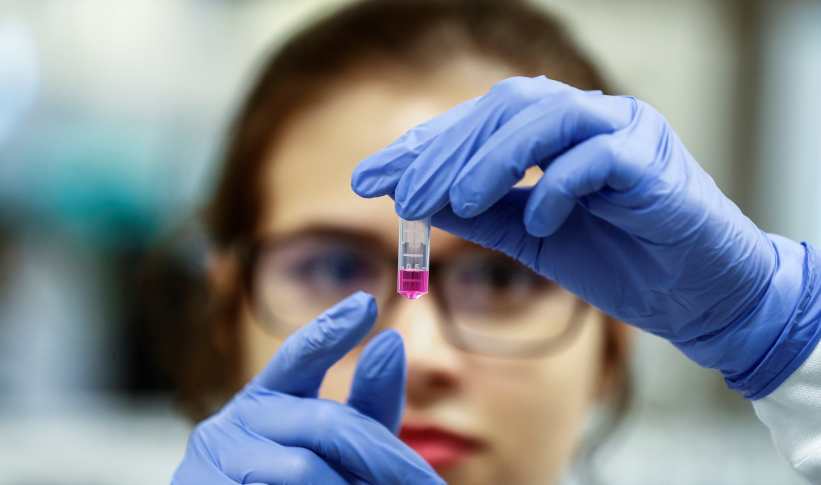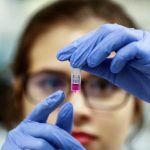Russia’s coronavirus vaccine attacked by the U.S. mainstream media shows ‘no serious adverse’ effects, safe to use, and creates antibody response, the Lancet study shows

Early last month, we told you about the new coronavirus vaccine that was developed by Russian scientists. At the time, Russia announced it has completed the clinical trials of a vaccine against COVID-19 and will be made available for emergency use on health-care workers this fall.
According to the announcement, the clinical trials of the Russian vaccine were completed in less than two months and phase three trials are set to begin shortly, despite the vaccine having already been registered. However, it didn’t take long before American mainstream media started to attack the vaccine. Dubbed “Sputnik V” in Russia, the vaccine also faced criticism from around the world amid questions as to its safety and efficacy. However, the Russian government fired back saying the U.S. mainstream media is waging ‘major information warfare’ against its coronavirus vaccine.
Now, it turns out that not only does Russia’s coronavirus vaccine create an antibody response, but it also shows no major negative side effects. According to early results from the vaccine trials published in the peer-reviewed medical journal The Lancet, scientists found that the new Russia’s coronavirus vaccine is safe and well-tolerated with no major negative side effects.
According to the study, scientists conducted open, non-randomized phase 1/2 studies at two hospitals in Russia between June 18 and Aug 3, 2020. In the two studies (38 in each study), they enrolled 76 healthy volunteers, aged 18 to 60. In each study, nine volunteers received rAd26-S in phase 1, nine received rAd5-S in phase 1, and 20 received rAd26-S and rAd5-S in phase 2.
“Large, long-term trials including a placebo comparison, and further monitoring are needed to establish the long-term safety and effectiveness of the vaccine for preventing COVID-19 infection,” the study’s authors said.
The study also found Russia’s coronavirus vaccine to be safe and also noted that the vaccine-induced antibody responses in all participants. Here is how the scientists described their findings:
“Both vaccine formulations were safe and well tolerated. The most common adverse events were pain at injection site (44 [58%]), hyperthermia (38 [50%]), headache (32 [42%]), asthenia (21 [28%]), and muscle and joint pain (18 [24%]). Most adverse events were mild and no serious adverse events were detected.”
In a series of tweets, the Lancet said:
“Preliminary results from Russian trials find that #COVID19 vaccine candidates led to no serious adverse events and elicit antibody response.”
Lancet added:
Doctors involved in the trials conducted “two open, non-randomised phase 1/2 studies at two hospitals in Russia,” on 76 healthy volunteers aged 18 to 60, the Lancet article said. It added that the vaccine formulations tested were “safe and well tolerated.”
“The two 42-day trials – including 38 healthy adults each – did not find any serious adverse effects among participants, and confirmed that the vaccine candidates elicit an antibody response,” the study’s authors wrote.
NEW—Preliminary results from Russian trials find that #COVID19 vaccine candidates led to no serious adverse events and elicit antibody response https://t.co/jGUwQa8oNd
Thread (1/8) pic.twitter.com/NWBpWDvUK3
— The Lancet (@TheLancet) September 4, 2020
Between June 18 and Aug 3, 2020, we enrolled 76 participants to the two studies (38 in each study). In each study, nine volunteers received rAd26-S in phase 1, nine received rAd5-S in phase 1, and 20 received rAd26-S and rAd5-S in phase 2. Both vaccine formulations were safe and well tolerated. The most common adverse events were pain at injection site (44 [58%]), hyperthermia (38 [50%]), headache (32 [42%]), asthenia (21 [28%]), and muscle and joint pain (18 [24%]). Most adverse events were mild and no serious adverse events were detected. All participants produced antibodies to SARS-CoV-2 glycoprotein. At day 42, receptor binding domain-specific IgG titres were 14 703 with the frozen formulation and 11 143 with the lyophilised formulation, and neutralising antibodies were 49·25 with the frozen formulation and 45·95 with the lyophilised formulation, with a seroconversion rate of 100%. Cell-mediated responses were detected in all participants at day 28, with median cell proliferation of 2·5% CD4+ and 1·3% CD8+ with the frozen formulation, and a median cell proliferation of 1·3% CD4+ and 1·1% CD8+ with the lyophilised formulation.

